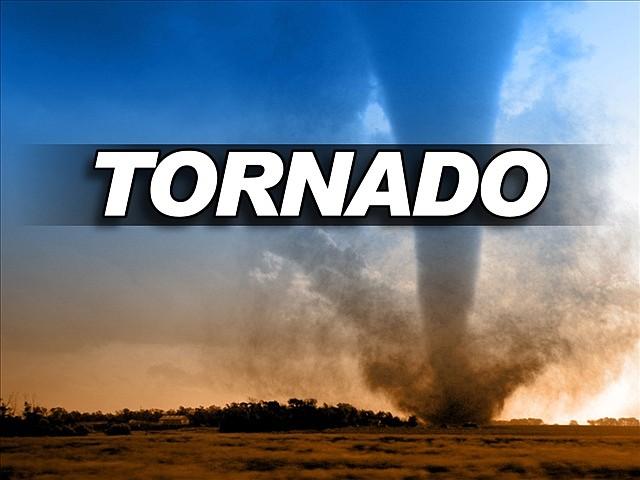SMITH INSTITUTE, Ala. - Three pens were built and ready for the 18 baby chicks that 10-year-old Max Feemster would raise for the Chick Chain project. It was only a few weeks until the scheduled day to pick up the chicks when a tornado ripped through the Smith Institute community, leaving the Feemster family with nothing but the clothes on their backs.
The roof was blown off the house and they felt it shaking, but they did not realize until the tornado was over that the house had been picked up and moved about 200 feet, Max's mother, Amy Feemster said.
"We walked out in our pajamas," she said. Nobody in their family was hurt.
Even if the pens had survived, the Feemsters were beginning the process to replace their house, barns, sheds and all their belongings.
Max's mom had forgotten about the chicks until she received an email that they were ready to be picked up. She called Amy Burgess, the Etowah County Extension coordinator for 4-H, to let her know they would be unable to pick up Max's chicks.
That was the first time Burgess realized the Feemster family had lost everything. The chicks were ordered, though, and someone would have to take them.
She set out to find a place for them and quickly found three other kids already participating in the Chick Chain project who agreed to take them.
Caleb Smith participated in the Chick Chain project last year, but all participants were given 24 chicks. This year it was only 18.
When Caleb's mother, Leah Smith, was first told that he was getting extra, she was mistakenly told it was double. Based on the 24 from last year, she thought that meant 48.
When she found out it was only six extra and this year's number was 18, that was the same number as last year, and she was relieved.
Sarah Oden and Dustin Barrs each agreed to take six chickens.
Burgess said as she coordinated the replacements, she decided to let the three kids make it a community service project. "I knew this would be a good opportunity to give back," she said.
When Caleb found out about the chicks and why they were asked to take extra, he eagerly agreed.
"It feels good to give back," he said.
His mother agreed.
"I knew this was a good opportunity for him," she said. "We're proud of him. He's a good kid and very compassionate, very thoughtful of others. It's just heartwarming."
The Chick Chain project is becoming more and more popular. It has been a project in Etowah County since 2012 and was first in Alabama two years before that.
It has grown this year to include almost 100 participants in Etowah, DeKalb and Cherokee counties. There are 40 in Etowah, with 20 in DeKalb and 58 in Cherokee.
Chickens are picked up in May and purchased from the extension office for $50.
The kids get the chicks as hatchlings and grow them for 22 weeks.
They bring their top five birds to the 4-H Show and Auction in September, and those who bring the five chickens to the show are guaranteed their money back.
The program is open to anyone ages 9 to 19 who lives or attends school in Etowah County, and 4-H membership is not required.
At the show and auction in September, the kids can make some money, but an important element is showing the chickens.
Preparing the kids for the show is one of the jobs of Burgess and Landon Marks, regional extension agent in animal science.
They visit each participant's operation about midway through the process and help with questions and make sure all is going well.
They visited Caleb last week.
"Can you tell me the difference between the pullets and the roosters?" Marks asked Caleb.
Caleb easily answered all Marks' questions and explained what he has been doing to best raise the chickens. They must learn how to manage the expenses and other aspects of raising chickens.
Marks said showmanship is important.
"They will judge you based on the presentation of the bird," Marks told Caleb.
